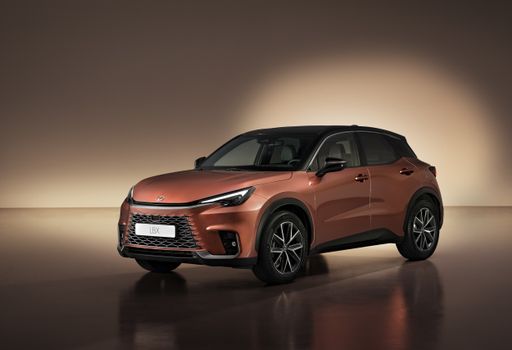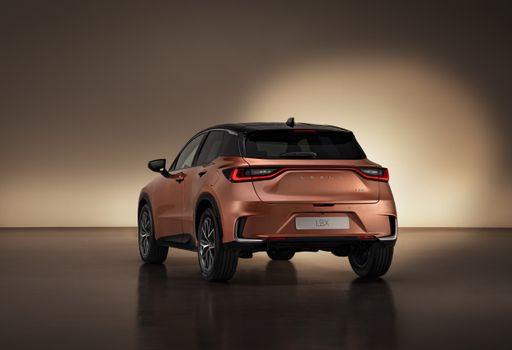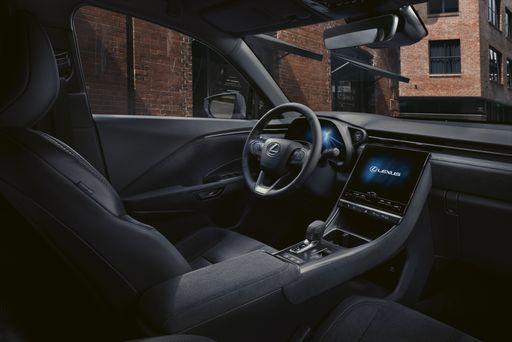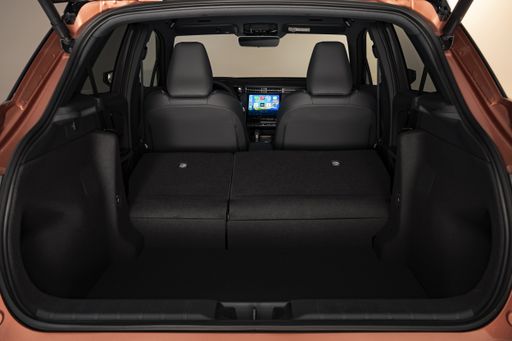Lexus LBX vs Toyota Yaris Cross - Differences and prices compared
Compare performance (136 HP vs 130 HP), boot space and price (28300 £ vs 23700 £) at a glance. Find out which car is the better choice for you – Lexus LBX or Toyota Yaris Cross?
Costs and Efficiency:
Price and efficiency are key factors when choosing a car – and this is often where the real differences emerge.
Toyota Yaris Cross has a to a small extent advantage in terms of price – it starts at 23700 £, while the Lexus LBX costs 28300 £. That’s a price difference of around 4586 £.
Both cars consume an average of 4.50 L per 100 km – no difference here.
Engine and Performance:
Power, torque and acceleration are the classic benchmarks for car enthusiasts – and here, some clear differences start to show.
When it comes to engine power, the Lexus LBX has a barely noticeable edge – offering 136 HP compared to 130 HP. That’s roughly 6 HP more horsepower.
In acceleration from 0 to 100 km/h, the Lexus LBX is slightly quicker – completing the sprint in 9.20 s, while the Toyota Yaris Cross takes 10.70 s. That’s about 1.50 s faster.
There’s no difference in top speed – both reach 170 km/h.
Space and Everyday Use:
Cabin size, boot volume and payload all play a role in everyday practicality. Here, comfort and flexibility make the difference.
Both vehicles offer seating for 5 people.
In curb weight, Toyota Yaris Cross is slight lighter – 1180 kg compared to 1280 kg. The difference is around 100 kg.
In terms of boot space, the Toyota Yaris Cross offers slightly more room – 397 L compared to 332 L. That’s a difference of about 65 L.
In maximum load capacity, the Toyota Yaris Cross performs barely noticeable better – up to 1097 L, which is about 103 L more than the Lexus LBX.
When it comes to payload, Toyota Yaris Cross slight takes the win – 510 kg compared to 475 kg. That’s a difference of about 35 kg.
Who wins the race?
The Toyota Yaris Cross proves to be edges ahead and therefore becomes our DriveDuel Champion!
Toyota Yaris Cross is the better all-rounder in this comparison.

Toyota Yaris Cross
Costs and Consumption
View detailed analysis
Engine and Performance
View detailed analysis
Dimensions and Body
View detailed analysis
Lexus LBX
The Lexus LBX wraps premium touches and a surprisingly spacious cabin into a compact crossover that’s perfectly at home in town or heading out on longer drives. It wears the badge with quiet confidence, serving up a refined ride and clever packaging for buyers who want Lexus polish without shouting for attention.
details



Toyota Yaris Cross
The Toyota Yaris Cross takes the jaunty personality of the Yaris and gives it a taller stance and a bit more practicality, so you get city-friendly agility with added SUV presence. It’s easy to live with, economical on the daily grind, and smartly packaged — a sensible pick for buyers who want fuss-free transport with a touch of character.
details







|

|
|
|
|
Costs and Consumption |
|
|---|---|
|
Price
28300 - 40000 £
|
Price
23700 - 34300 £
|
|
Consumption L/100km
4.5 - 4.8 L
|
Consumption L/100km
4.5 - 4.8 L
|
|
Consumption kWh/100km
-
|
Consumption kWh/100km
-
|
|
Electric Range
-
|
Electric Range
-
|
|
Battery Capacity
-
|
Battery Capacity
-
|
|
co2
102 - 110 g/km
|
co2
101 - 108 g/km
|
|
Fuel tank capacity
36 L
|
Fuel tank capacity
36 L
|
Dimensions and Body |
|
|---|---|
|
Body Type
SUV
|
Body Type
SUV
|
|
Seats
5
|
Seats
5
|
|
Doors
5
|
Doors
5
|
|
Curb weight
1280 - 1365 kg
|
Curb weight
1180 - 1290 kg
|
|
Trunk capacity
255 - 332 L
|
Trunk capacity
320 - 397 L
|
|
Length
4190 mm
|
Length
4180 mm
|
|
Width
1825 mm
|
Width
1765 mm
|
|
Height
1560 mm
|
Height
1595 mm
|
|
Max trunk capacity
992 - 994 L
|
Max trunk capacity
1097 L
|
|
Payload
455 - 475 kg
|
Payload
485 - 510 kg
|
Engine and Performance |
|
|---|---|
|
Engine Type
Full Hybrid
|
Engine Type
Full Hybrid
|
|
Transmission
Automatic
|
Transmission
Automatic
|
|
Transmission Detail
CVT
|
Transmission Detail
CVT
|
|
Drive Type
Front-Wheel Drive, All-Wheel Drive
|
Drive Type
Front-Wheel Drive, All-Wheel Drive
|
|
Power HP
136 HP
|
Power HP
116 - 130 HP
|
|
Acceleration 0-100km/h
9.2 - 9.6 s
|
Acceleration 0-100km/h
10.7 - 11.3 s
|
|
Max Speed
170 km/h
|
Max Speed
170 km/h
|
|
Torque
185 Nm
|
Torque
-
|
|
Number of Cylinders
3
|
Number of Cylinders
3
|
|
Power kW
100 kW
|
Power kW
85 - 96 kW
|
|
Engine capacity
1490 cm3
|
Engine capacity
1490 cm3
|
General |
|
|---|---|
|
Model Year
2025
|
Model Year
2024 - 2025
|
|
CO2 Efficiency Class
C
|
CO2 Efficiency Class
C
|
|
Brand
Lexus
|
Brand
Toyota
|
What drivetrain options does the Lexus LBX have?
Available configurations include Front-Wheel Drive or All-Wheel Drive.
The prices and data displayed are estimates based on German list prices and may vary by country. This information is not legally binding.
